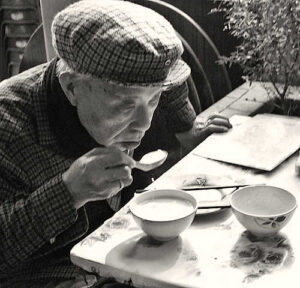Addressing Food Insecurity: You Can Help!
By Jamie McPherson, Your Own Home In-Home Senior Care
Food insecurity has been a growing topic for many years, with the majority of the focus being on children. What hasn’t been discussed to the same extent, though, is the increasing number of older individuals who are impacted by their own sets of circumstances, leaving them with limited nutrition options.
A Cascading Effect
Lauri Wright, a registered dietician who chairs the Department of Nutrition and Dietetics at the University of North Florida, explained how complicated the nutrition problem gets for seniors. Paying for expensive medications often leaves less money available to buy food. With limited or no ability to drive, getting to the grocery store becomes more difficult. Chronic physical and mental health problems make cooking at home difficult. And malnutrition contributes to weakened immune systems.
Not Enough Help is Available
Government programs, including the Older Americans Act, passed by President Lyndon Johnson, were designed to be a safety net to provide the essentials for people. However, funding for the Act as a whole, and for the biggest piece of the act’s budget, nutrition services, has been steadily decreasing for 20 years when adjusted for inflation. This at a time when demand for services has increased and food prices have risen.
A 2017 study released by the anti-hunger group Feeding America showed that 8% of Americans 60 and older (5.5 million people) didn’t have consistent access to sufficient and/or healthy food. This number doubled from 2001 and is expected to continue to grow. In fact, a recent report by the U.S. Government Accountability Office showed 83% of seniors in need receive no meal services at all under the act.
Serving Seniors
Meals on Wheels, a network of 5,000 community-based programs, serves nutritious meals to 2.4 million participants each year. The program receives money from the Older Americans Act, as well as public and private dollars, to fund operations, yet their budget is not enough to cover the seniors currently enrolled in the program, let alone the tens of thousands on waiting lists around the country.
You Can Make an Impact
While we aren’t going to solve the food insecurity crisis overnight, there are a few things we should do as citizens to be of service. Food pantries are always in need of shelf-stable products, so consider adding some items to your weekly shopping list and dropping them off. Reliable delivery drivers are the backbone of Meals on Wheels, so inquire about a regular volunteer position with them if you want to help your community. The next meeting at your church, synagogue, or civic association, recruit fellow members to join your charge. Remember: We have the power to make a profound impact on the lives of millions of Americans with a little care and determination.
At Your Own Home In-Home Senior Care, we care about you, your family and our community. Your Own Home, LLC provides personalized In-Home Care Plans that meet a person’s every need, from companionship to medication management to housekeeping and everything in between. Call us today at 302-478-7081 or email info@yourownhomecare.com to find out how we can help you or your loved one. We’re here for you!






